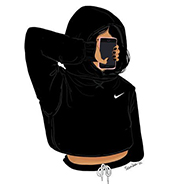Сделать к тексту.
for any business, the cost of transportation is normally the largest single item in the overall cost of physical distribution. it doesn't necessarily follow, though, that a manufacturer should simply pick the cheapest available form of transportation. many companies today use the total physical distribution concept, an approach that involves maximizing the efficiency of physical distribution activities while minimizing their cost. often, this means that the (9) company will make cost tradeoffs between the various physical distribution activities. for instance, air freight may be much more expensive than rail transport, but a national manufacturer might use air freight to ship everything from a single warehouse and thus
avoid the greater expense of maintaining several warehouses.
when a firm chooses a type of transportation, it has to bear in mind its other marketing concerns—storage, financing, sales, inventory size, and the like. transportation, in fact, can be an especially important sales tool.(18) if the firm can supply its customers' needs more quickly and reliably than its competitors do, it will have a vital advantage: so it may be more profitable in the long run to pay higher transportation costs, rather than risk the loss of future sales. in addition, speedy delivery is crucial in some industries. a mail-order distributor sending fruit from oregon to pennsylvania needs
(20) promptness of air freight. on the other hand, a manufacturer shipping lingerie from new york to assachusetts may be perfectly satisfied with slower (and cheaper) truck or rail transport.
1. the passage supports which of the
following statements?
(a) businesses should use the least expensive form of transportation.
(b) transportation is an important aspect of business.
(c) rail transportation is usually better for companies because it is cheaper than air transport.
(d) most manufacturers choose the fastest form of delivery.
2. according to the passage, all of the
following would influence the type of
transportation that a company might
choose except
(a) the type of goods to be shipped
(b) the expense of the shipping
(c) the time it takes for delivery
(d) the size of its warehouses
3. the author states in the passage that the total physical distribution concept
(a) is based on the capability and cost-effectiveness of a transportation system
(b) advocates the use of air freight because of its efficiency
(c) suggests trading goods for transportation services
(d) relies on using warehouses for storing goods
4. the phrase "cost tradeoffs" in line 9 means that companies
(a) sometimes engage in bartering goods
(b) may choose an expensive form of transportation if costs can be cut in another area
(c) prefer warehouses to air transportation
(d) rarely use rail transport
5. it can be inferred from the passage that transportation is
(a) important to continued successful sales
(b) independent of other business concerns
(c) not used effectively by businesses
(d) too expensive for most mail-order industries to use
6. we can conclude from the passage that a business that deals in perishable goods would probably choose to ship by
(a) rail
(b) truck
(c) tair freight
(d) any type of cheap transport
7. the word "its" in line 18 refers to which of the following?
(a) competitors
(b) firm
(c) customers
(d) sales tool
8. this passage would probably be assigned reading in which of the following academic courses?
(a) marketing
(b) statistics
(c) mechanical engineering
(d) history
226
241
Ответы на вопрос:
Можеть будет так
Must
Must
Must
Must
Mustnt
Объяснение:
Напишите по понятнее
Популярно: Английский язык
-
Please, please, I need help ...
 gudishonozvm3p07.06.2020 04:41
gudishonozvm3p07.06.2020 04:41 -
I need help with English ...
 elinanagimova15.06.2023 13:06
elinanagimova15.06.2023 13:06 -
Answer the questions. (Part IV.) 1. When do the Pecks work in the...
 helsey31.10.2022 16:29
helsey31.10.2022 16:29 -
за задание по английскому! Rephrase these comments using the following...
 azot2117.12.2022 01:42
azot2117.12.2022 01:42 -
Работать в парах. Совместите места в уликах 1-8 с буквами A-H на...
 mony329.10.2021 11:15
mony329.10.2021 11:15 -
Use the words to complete the text. Arranging a journey to a space...
 alexlion99alex18.07.2021 07:10
alexlion99alex18.07.2021 07:10 -
Сложить предложение со словом admiting...
 irinar126.05.2022 15:32
irinar126.05.2022 15:32 -
Написать сочинение сочинение на тему человек которым я восхищаюсь...
 Амина76214.02.2020 23:25
Амина76214.02.2020 23:25 -
A) write what you like /don t like to eat and to drink писать...
 bulycheva030311.10.2022 01:15
bulycheva030311.10.2022 01:15 -
На языке описать, что мы одеваем на вечеринку в ресторан и на работу...
 LeklA28.08.2020 00:24
LeklA28.08.2020 00:24
